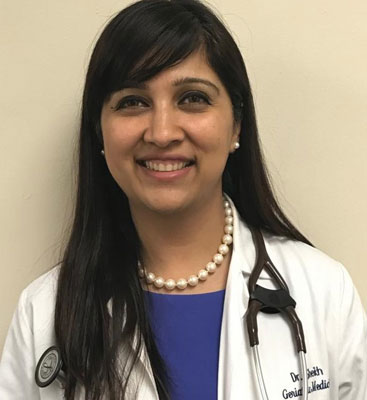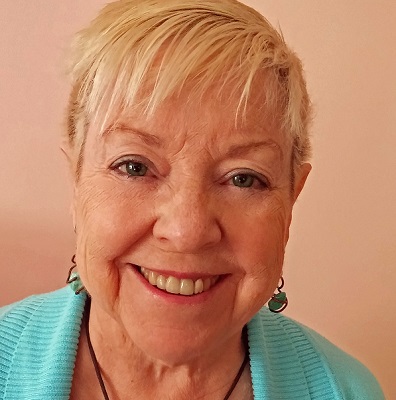1.) What does a typical day look like as a clinician? How might it be different from a career as a clinician educator, researcher or administrator?
As a clinician I spend my day seeing patients at my nursing facility. For those patients who get admitted to the facility from the hospital, I not only focus on their medical problems but also try to evaluate their social situation including social support at home and their capacity to make medical decisions as both of these can play an important role in tailoring their care to their needs. One important piece of care transitions from the hospital to the subacute setting is medication reconciliation. I make that my priority when I see my patients for their initial evaluation.
I also spend part of my day making follow-up visits on my subacute patients, and my focus during those visits is not just to address any clinical needs but also to help them overcome any barriers that may hinder their progress in therapy and ultimately their return to the community.
I feel that my career as a clinician is very different than a clinician educator, researcher or an administrator. You have ownership of your patients and you are leading their care. You are a detective trying to solve a mystery about their presenting symptoms and signs.
2.) Who would be a good candidate for this work? What are their interests? What skills do they need to be successful?
A good candidate to work as a clinician will be someone who enjoys working with the patients, but is also willing to work with their families. Important skills for a clinician to be successful in this field are passion for patient care, good communication skills, and respect for interprofessional teams.
3.) Tell us a favorite story about your work.
Whenever I make my visits to see long-term patients in my nursing facility, I particularly look forward to seeing one 94-year-old female patient. Each time I go to visit her; she greets me with her most beautiful smile and gives me a warm hug. Her sense of style amuses me as she always has beautiful colorful clothes and jewelry on. Her face is always made up with a bright lip color and a pink blush on her cheeks. After we chat about her medical problems she makes sure to tell me that she loves me. Her smile, her hug and her kind words wipe away all of my tiredness for that day and leave me refreshed. She reminds me why I love to be a clinician and a geriatrician.
4.) What kinds of people do you interact with as a clinician?
As a geriatrician I often interact with families of my frail older patients. I value their input in care of their loved ones and make efforts to show my appreciation towards them for what they do as caregivers.
As a clinician practicing in a nursing facility I enjoy working with an interprofessional team which helps me to provide best possible care to my patients. It includes but is not limited to; nurses, nurse practitioners, geriatric nursing assistants, housekeeping and environmental personnel, administrators, social workers, rehabilitation therapists and many more.
Learn about training requirements for a career as a Geriatrician


